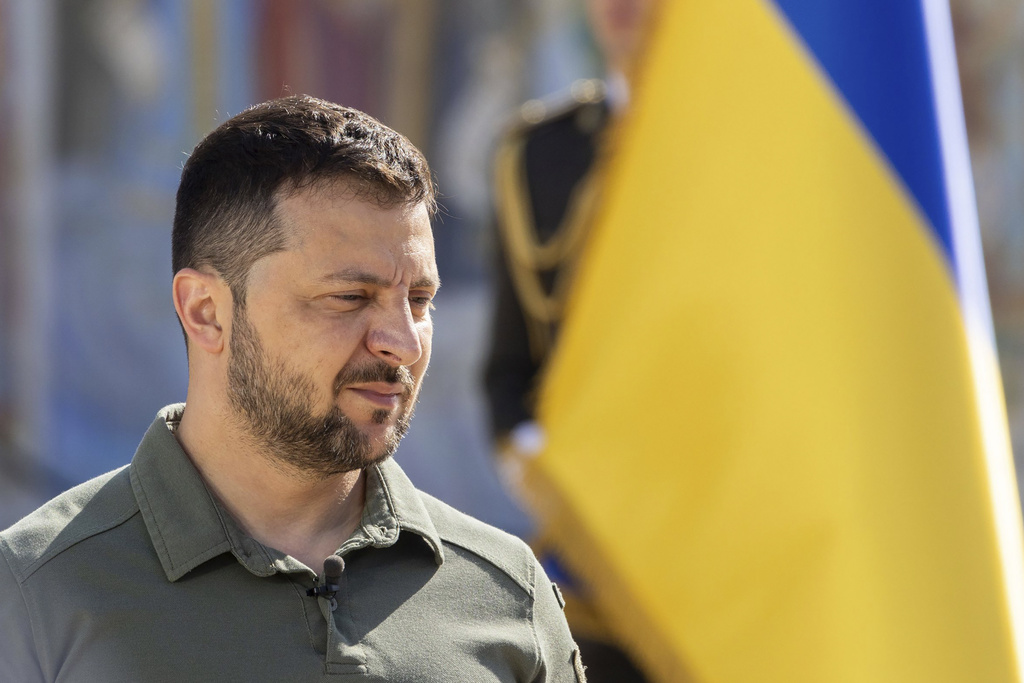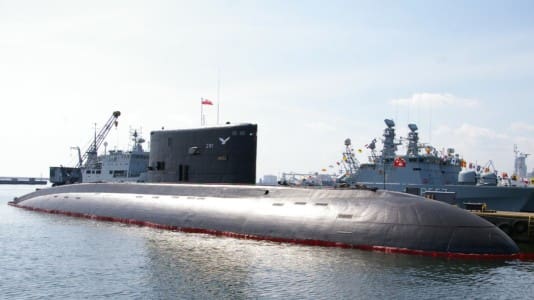Since the middle of May, there has been a series of incidents between Poland and Ukraine.
First of all, there was the totally disproportionate reaction to the Polish foreign ministry’s comments in a media program that called for Ukrainian President Volodymyr Zelensky to apologize to Poland for the Volhynia massacre. That was followed by the head of the Ukrainian Institute for National Remembrance claiming Ukraine would not resume the exhumations of Polish victims of the Volhynia massacre until Poland restored monuments on Polish territory to the Ukrainian liberation army.
Next came the simmering dispute over the embargo on Ukrainian grain in which the European Commission has adopted a passive stance. It was ultimately Poland who, on behalf of Ukraine’s five neighboring states, took action, which the Commission in the end reluctantly allowed, though only until mid-September.
Ukraine took an aggressive stance, accusing Poland of trying to stop the transit of Ukrainian grain and falsely accusing Poland of being in violation of WTO rules. It made no attempt to show any understanding of the plight of Polish farmers.
But the most dramatic incident took place last week when the Ukrainians summoned Poland’s ambassador in Kyiv to give him a dressing down for remarks made by President Andrzej Duda’s chief aide about Ukraine’s lack of understanding for Poland’s farmers and that Kyiv should be more grateful for Polish help. The summoning of the ambassador is a very radical measure, normally taken against foes rather than allies.
All this will please the Russians, but for once it is not the Russians who have caused this.
The roots of the tension lie rather in the West. The NATO summit in Vilnius was good for Poland in that it strengthened NATO’s eastern flank. However, the failure to cancel the NATO-Russia agreement from 1997, the failure to make Ukraine a candidate for NATO membership, and the American wish to have Ursula von der Leyen, and therefore Germany, leading NATO, meant that it was not a full success for the region.
The Ukrainians received a clear message that the U.S. wants to build European security around Germany. Germany and the U.S. Democrats have little or no time for Poland’s current government and believe naively it is a barrier to harmonious European cooperation. This is why both Germany and U.S. President Joe Biden want to see the liberal Civic Platform (PO) replace the present government in this autumn’s Polish election. The return of close Polish-German cooperation is to help the U.S. make the EU more susceptible to cooperating with America over China while maintaining unity toward Russia.
Ukraine wants to join NATO, and here the U.S. view will be decisive. But when it comes to EU membership, the decision makers will be Germany. Kyiv’s problem is that it does not have a complex understanding of NATO and European politics. The country does not have an ecosystem of think tanks looking at these issues.
Ukraine seems to believe that since defeating Russia is in Poland’s interests, Poland will support whatever Kyiv does. So, a liberal PO government backed by Germany and Washington seems a better option for them, and by cooling relations with the present Polish administration, they hope to bring that about.
Germany is acting in its own interests in trying to remove a government that refuses to bow to its interests and its vision for the future of the EU. But the U.S. and Ukraine are making a mistake. Poland’s liberal opposition is not pro-American or pro-Ukrainian. It is pro-German and will pursue Germany’s policy toward Russia and China — not that of Washington. And Germany will not buy into either isolating Russia or confronting China. That is what the last liberal government did.
The danger for both Kyiv and Washington is that they may lose a close ally in Poland to the benefit of both Germany and Russia.
We warned about Russia at the time of the Obama reset in 2008 and the EU’s strategic partnership with Russia. It is time to warn again. Germany will not behave in the way the U.S. and Ukraine hope, nor will a liberal government in Warsaw.
It would be good if both the U.S. and Ukraine understood that and avoided unnecessary problems.





